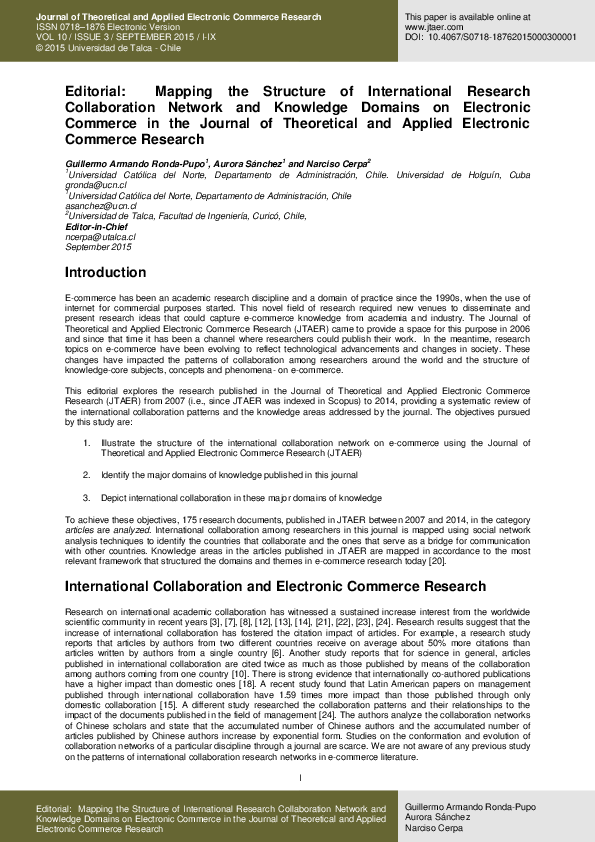电子口碑对餐厅选择决策的影响:千禧一代是否受性别影响?
IF 5.1
3区 管理学
Q1 BUSINESS
Journal of Theoretical and Applied Electronic Commerce Research
Pub Date : 2024-03-14
DOI:10.3390/jtaer19010033
引用次数: 0
摘要
鉴于网络口碑的指数式增长,尤其是在千禧一代中,对网络意见咨询行为的分析对于更好地理解决策过程至关重要。本建议旨在分析网络口碑咨询动机如何促进网络口碑的最终采纳,尤其是在餐饮业中,探索 "网络口碑咨询动机-网络口碑咨询意向-网络口碑咨询采纳 "的关系链。此外,还论证了性别在这一关系链中的调节作用。以 341 名具有阅读在线评论和访问餐馆经验的千禧一代为样本,通过 PLS 估计厄瓜多尔地区的因果模型。结果证实,千禧一代的动机直接影响了他们咨询网络口碑的意向,并间接影响了网络口碑的采用。此外,性别对连锁效应的影响并不显著。鉴于虚拟平台有可能对男性和女性产生同等影响,餐厅在社交媒体上针对这一目标受众开展的传播工作必须关注性别以外的其他方面。本文章由计算机程序翻译,如有差异,请以英文原文为准。
Influence of Electronic Word-Of-Mouth on Restaurant Choice Decisions: Does It Depend on Gender in the Millennial Generation?
Given the exponential growth of eWOM, especially among the millennial generation, an analysis of the consultation behaviour of online opinions is essential to better understanding the decision-making process. The aim of this proposal is to analyse how the motivations towards eWOM consultation contribute to the final adoption of eWOM, especially in the restaurant context, exploring the relationship chain “motivations to consult eWOM—intention to consult eWOM—adoption to consult eWOM”. Moreover, studying the moderating effect of gender in this chain is argued. Based on a sample of 341 millennials with experience in reading online reviews and visiting restaurants, a causal model was estimated through PLS estimation in the geographic area of Ecuador. The results confirm that millennials’ motivations influence directly their intention to consult eWOM and indirectly on eWOM adoption. In addition, gender does not show a significant effect on the chain of effects. Given that virtual platforms have the potential to influence men and women equally, the communication efforts of restaurants focused on this target audience and carried out on social media must focus on aspects other than gender.
求助全文
通过发布文献求助,成功后即可免费获取论文全文。
去求助
来源期刊
CiteScore
9.50
自引率
3.60%
发文量
67
期刊介绍:
The Journal of Theoretical and Applied Electronic Commerce Research (JTAER) has been created to allow researchers, academicians and other professionals an agile and flexible channel of communication in which to share and debate new ideas and emerging technologies concerned with this rapidly evolving field. Business practices, social, cultural and legal concerns, personal privacy and security, communications technologies, mobile connectivity are among the important elements of electronic commerce and are becoming ever more relevant in everyday life. JTAER will assist in extending and improving the use of electronic commerce for the benefit of our society.

 求助内容:
求助内容: 应助结果提醒方式:
应助结果提醒方式:


